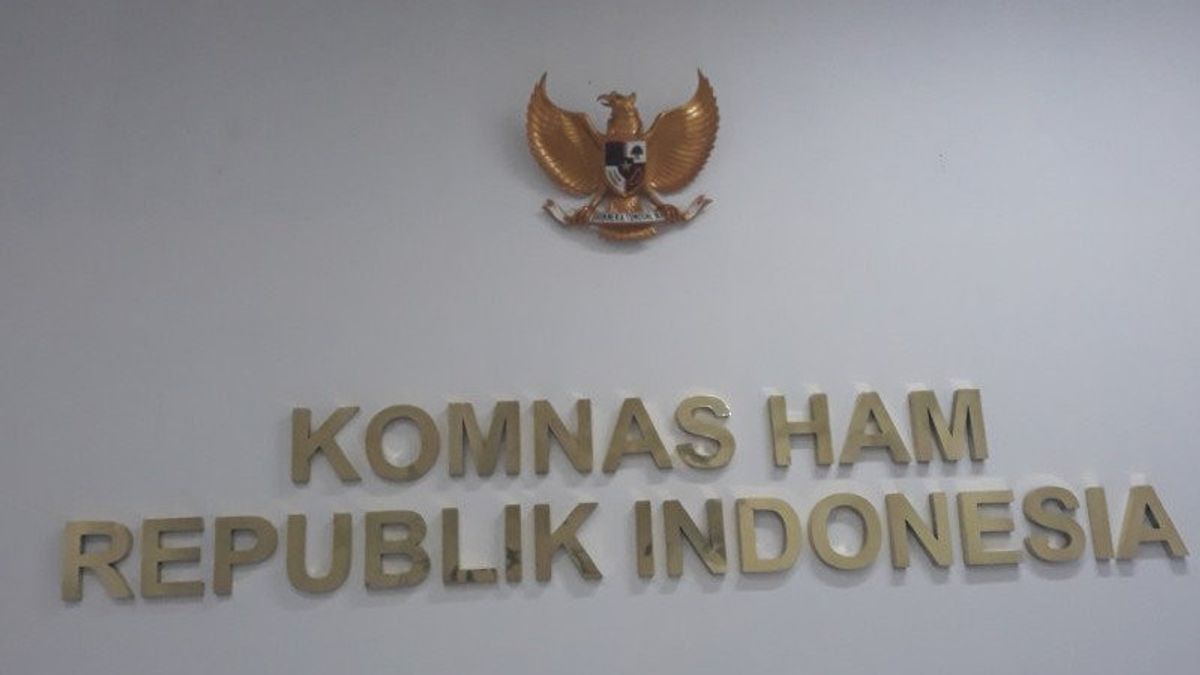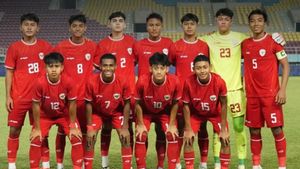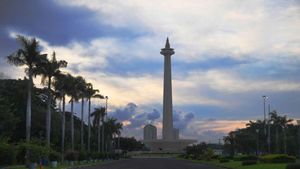JAKARTA - The National Human Rights Commission (Komnas HAM) recommends the government and the DPR to review the Second Amendment Bill (RUU) of Law Number 11 of 2008 concerning Information and Electronic Transactions (ITE).
"The Second Amendment Bill to the ITE Law needs to shift the orientation from curbing the right to freedom of expression to an orientation protecting the right to freedom," said Komnas HAM Commissioner for Studies and Research Sandrayati Moniaga in a written statement, quoted from Antara, Thursday, July 28.
First, Komnas HAM recommends that the "principle of non-discrimination" be included as an important principle in the ITE Bill. Second, the makers of the ITE Bill need to include a special article on "legal and proportional restrictions".
The goal, he said, is to become the basis for law enforcement in responding to the extent to which a report on a case meets the criteria as a criminal act or not. Furthermore, removing the formulation of the article on defamation in the ITE Bill.
Because, he said, this has the potential to limit the right to freedom of expression excessively or over limitation. If the article on defamation is maintained, then the definition or elements of defamation must be explained clearly.
Whether it's from the subjective, objective, and the consequences. In addition, the case is no longer included as a criminal act with the threat of criminal sanctions but is included in an unlawful act with legal liability of a civil nature.
"For example, apologies, compensation or compensation to those who were harmed," he said.
The next recommendation is to improve the formulation of Article 40 paragraph (2b) by emphasizing that the institution that is given the authority to shut down the internet ("shutdown") is an independent institution.
This, he added, was accompanied by an obligation to provide information to the public regarding the reasons for the termination of the internet network. Both regarding the length of time for termination, the scope of the area being terminated, and the legal basis and considerations of the termination policy.
For this reason, he said, internet access restrictions must be followed by a clear accountability mechanism as part of the state's obligation to respect, protect and fulfill the human rights of every citizen.
"Fifth, a moratorium on the application of problematic articles of the ITE Law to prevent human rights violations until the ITE Bill is passed," he said.
Finally, he said, Komnas HAM's Standard Norms and Regulations (SNP) Number 5 concerning the Right to Freedom of Opinion and Expression should be a reference for the government and the DPR in formulating the ITE Bill.
The English, Chinese, Japanese, Arabic, and French versions are automatically generated by the AI. So there may still be inaccuracies in translating, please always see Indonesian as our main language. (system supported by DigitalSiber.id)













